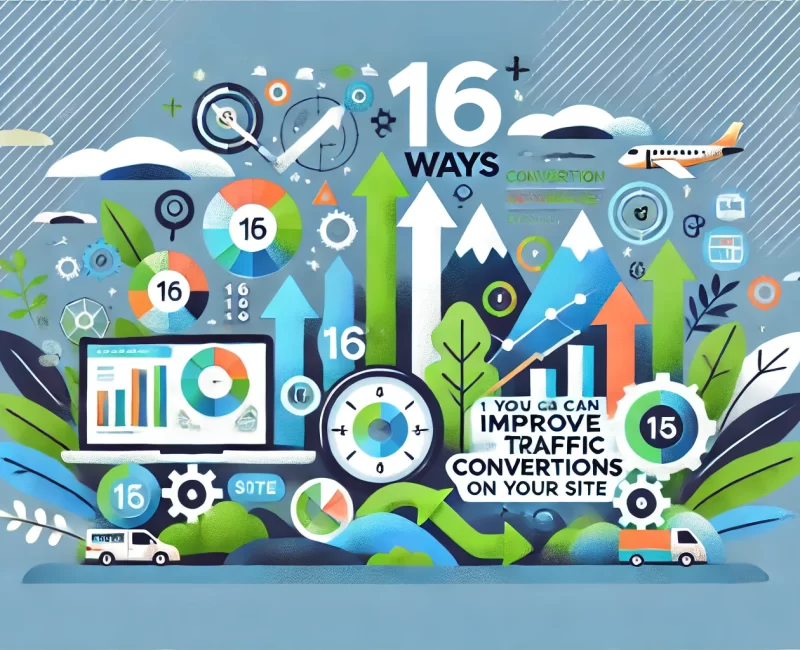
In the broad and ever-changing digital landscape, search engine optimisation (SEO) has emerged as a critical component for organisations and individuals looking to improve their online presence. While on-site SEO tactics, such as keyword optimisation and quality content production, are critical for enhancing a website’s relevance and authority, off-site SEO is equally important in driving visitors and improving rankings.
This article looks into the notion of off-site SEO, discussing its significance, major components, and how to effectively utilise it to improve the performance of your website.
What is Off-Site SEO?
Off-site SEO refers to all the optimisation activities that take place outside your website, aimed at enhancing its authority and credibility in the eyes of search engines.
Unlike on-site SEO, which focuses on content, structure, and internal linking, off-site SEO primarily revolves around building external links, improving brand reputation, and fostering social media engagement.
The overarching goal is to signal to search engines that your website is a valuable resource worth recommending to users.
Why Off-Site SEO Matters
Understanding the importance of off-site SEO is fundamental for anyone looking to improve their online presence. Here are several reasons why it matters:
Enhances Domain Authority
One of the primary benefits of off-site SEO is the enhancement of your website’s domain authority. Search engines like Google consider various factors when determining a website’s authority, with backlinks being one of the most significant. High-quality backlinks from reputable sources act as endorsements, signalling that your content is trustworthy and valuable. The more authoritative the linking site, the greater the positive impact on your own site’s authority.
Increases Organic Traffic
A well-executed off-site SEO strategy can lead to a substantial increase in organic traffic. When your website is linked to by high-traffic sources, it can drive referral traffic directly to your site.
This not only boosts your visitor numbers but also enhances your chances of converting these visitors into customers.
Builds Brand Awareness
Off-site SEO is instrumental in building brand awareness.
By engaging in guest blogging, influencer collaborations, and social media marketing, you can expose your brand to a wider audience.
This increased visibility helps establish your brand as an authority in your niche, fostering trust and recognition among potential customers.
Improves Local SEO
For businesses operating in specific geographic areas, off-site SEO is essential for local search optimisation.
Building citations in local directories, receiving reviews, and garnering backlinks from local businesses can significantly enhance your visibility in local search results.
This is particularly important for brick-and-mortar establishments seeking to attract local customers.
Key Components of Off-Site SEO
To effectively leverage off-site SEO, it is crucial to understand its key components. Here are some of the most important elements to consider:
Backlink Building
Backlinks are at the heart of off-site SEO. Acquiring backlinks involves contacting other websites and persuading them to link to your content.
This can be achieved through guest blogging, creating shareable infographics, or conducting original research that others may want to reference.
To maximise the impact on your SEO, focus on obtaining links from authoritative and relevant websites.
Social Media Engagement
Social media platforms provide an excellent opportunity for off-site SEO. By actively engaging with your audience, sharing valuable content, and participating in discussions, you can drive traffic back to your website. Moreover, social signals—such as likes, shares, and comments—can indirectly influence your search engine rankings, as they showcase the popularity and relevance of your content.
Online Reputation Management
Your online reputation plays a significant role in off-site SEO. Positive reviews and testimonials can enhance your brand’s credibility, while negative feedback can detract from it.
Managing your online reputation through customer engagement, responding to reviews, and addressing negative comments is essential for maintaining a strong presence.
Influencer Marketing
Collaborating with influencers in your industry can yield significant benefits for off-site SEO. Influencers often have established audiences that trust their recommendations.
By partnering with them, you can gain exposure to new audiences, generate high-quality backlinks, and improve your brand’s authority.
Content Marketing
Creating high-quality, shareable content is a cornerstone of off-site SEO.
Whether it’s informative blog posts, engaging videos, or visually appealing infographics, content that resonates with your audience is more likely to be shared and linked to.
This drives traffic and establishes your website as a go-to resource in your niche.
Best Practices for Off-Site SEO
To maximise the effectiveness of your off-site SEO efforts, consider the following best practices:
Focus on Quality Over Quantity
When it comes to backlinks, quality is paramount. A few high-quality links from reputable sites can be far more beneficial than numerous low-quality links.
Prioritise building relationships with authoritative websites in your industry.
Monitor Your Backlink Profile
Regularly audit your backlink profile to identify any potentially harmful links that may negatively impact your SEO.
Use tools like Google Search Console or third-party SEO tools to keep track of your backlinks and disavow any that may be detrimental.
Stay Active on Social Media
Maintain a consistent presence on social media platforms relevant to your target audience.
Share your content regularly, engage with followers, and participate in industry discussions to foster a community around your brand.
Leverage Local Listings
For businesses with a physical presence, ensure your information is consistent across all local listings.
This includes Google My Business, Yelp, and other relevant directories. Consistency helps improve your visibility in local search results.
Conclusion
Off-site SEO is a vital component of any successful digital marketing strategy, offering numerous benefits that complement on-site optimisation efforts.
By focusing on key elements such as high-quality backlinks, social media engagement, and online reputation management, you can significantly enhance your website’s authority and visibility.
These strategies help drive organic traffic, build brand awareness, and establish your business as a trusted name in your industry.
Moreover, off-site SEO plays a crucial role in improving local search rankings, especially for businesses targeting specific geographic areas.
You can reach your target audience more effectively by leveraging techniques like local citations, customer reviews, and partnerships with reputable influencers.
When implemented consistently and strategically, off-site SEO boosts search engine rankings and fosters lasting relationships with your audience, ensuring sustainable growth in a competitive digital landscape.









